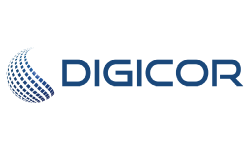
DIGITWG
DIGITAL TRANSITIONS
WORKING GROUP
The Digital Transitions Working Group (DIGITWG) project is a direct result of ongoing research in the Erasmus+ KA2 VET Partnership DIGICOR, showing a proportion of prison staff are very resistant to converting to digital tools, systems and thinking. The DIGICOR partnership hypothesizes that this factor is at least as important as existing known barriers such as lack of infrastructure budget or knowledge/experience sharing between prison systems.
Finding staff resistance to digital transition under recognised and under researched, this small-scale partnership will engage in structured mutual learning exercises to promote knowledge and awareness. We will capitalise on the a broad network of organisations and employers in the fields of prison and detention developed in the DIGICOR project, and add to this expert organisations on active labour market promotion and digital technology provision in correctional settings. DIGITWG will facilitate exchange between actors with different perspectives and mandates, both to develop a common understanding of where the challenges lie in digital prison transformation and change management, and to develop recommendations for stakeholders to apply a structured approach to whole-prison digitalisation.
All activities in this application are designed around our transversal aim of addressing digital transformation through greater readiness, resilience and capacity:
- To give all prison staff – regardless of what they know or understand about digital technology – equality of access to digital competency training and thereby respond to a known professional development need and make the prison service an attractive employer.
- To motivate them to broaden their awareness of how digital systems can improve how effective a prison is, and digital competencies can improve an individual inmate’s chances of reintegration upon release.
- The project idea is based on a concept of fairness amongst all citizens of all generations in the use and application of digital tools, and deliver flexible opportunities for VET.
The working group will run over eighteen months, and will be structured to transfer knowledge and experience of digitalisation in prison on the ground to inform the three levels of exchange by:
The first thing we did was to ask prison staff what they thought were the most important things to think about, in introducing new digital resources or services in prison. What made a new idea really bring about the social inclusion of prisoners and individuals post release? What was most effective for staff? We held online ‘Hubs’ between prison officers in different countries, had one-to-one interviews and held an online survey for 12 months. We reported on these Hubs, and put the most striking examples together as a set of case studies which you can read here.
On 16-17th May 2024, we brought partners and people from our online Working Groups together for two days, in Lisbon Portugal. The aim of this DIGICOR Digital Transitions Working Group Workshop was to present the four hub reports in detail and build on and facilitate exchange between actors with different experience, perspectives and mandates for prison digitalisation. We wanted to distil and agree a common understanding of where the challenges are in digital prison transformation and change management, discussions which began in the Hubs. Secondly, to develop easy-to-understand, jargon free recommendations for stakeholders to apply a structured approach to whole-prison digitalisation.
Based on outcomes from the Hubs, the survey, and the in-person workshop, three factsheets were written and reviewed by our Working Group members. With these factsheets, our aim is to specifically inform stakeholders about the challenges and possible solutions of digitalization in prison at the three levels of exchange - European policy, national prison administration, adult training and professional development.
Throughout the 18 months of this project, we’ve been promoting good ideas about digital rehabilitation and exchange on how it’s implemented. Our LinkedIn group is fully accessible and remains active.

Funded by the European Union. Views and opinions expressed are however those of the author(s) only and do not necessarily reflect those of the European Union or the European Education and Culture Executive Agency (EACEA). Neither the European Union nor EACEA can be held responsible for them.

This work forms part of the Eramus Plus project DIGICOR Digital Transition Working Group under the Grant Agreement – 2022-2-DE02-KA210-VET-000099538 DIGICOR Digital Transition Working Group.

